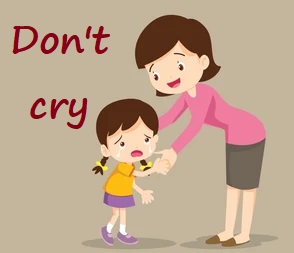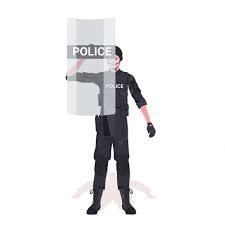We use the reported or indirect speech when we want to tell or report what someone said.
So, direct speech is what someone says, the actual words :

and we report using a reporting verb ➭say ➭tell and changing the tense (one step back) of what was actually said :

Apart from changing the tense of the verb, there is also a change of pronoun :
➣I becomes ➣She
Backshift changes – one step back
Backshift refers to the changes we make in indirect speech because time has passed between the moment of speaking and the time of the report. So:
| Present simple | becomes ☞ | Past simple |
| Past simple | becomes ☞ | Past perfect |
| Will | becomes ☞ | Would |
| Present continuous | becomes ☞ | Past continuous |
| Present perfect | becomes ☞ | Past perfect |
| Present perfect continuous | becomes ☞ | Past perfect continuous |
| Past continuous | becomes ☞ | Past perfect continuous |
| Past perfect | becomes ☞ | Past perfect (does not shift back) |
examples
| «We are vegan» ☞ | They said they were vegan |
| «They adopted a cat» ☞ | They told me they had adopted a cat |
| «I will fight for animals!» ☞ | He promised that he would fight for animals |
| «I am freeing birds from cages» ☞ | Ariadna declared that she was freeing birds from cages |
| «I have never been to a zoo!» ☞ | John stated that he had never been to a zoo |
| «We have been helping wild animals» ☞ | They claimed that they had been helping wild animals |
| «I was feeding them» ☞ | He mentioned he had been feeding them |
| «You had never loved me!» ☞ | My partner complained that I had never loved him |
more examples
| «Animals do not deserve being held in captivity» ☞ | ☞ | The scientist explained that animals did not deserve being held in captivity |
| «Men did not abolish slavery until as recently as 1963″ ☞ | ☞ | Obama reminded that men had not abolished slavery until as recently as 1963 |
| «Forgive me!! I won’t lie to you again» ☞ | ☞ | He promised that he wouldn’t lie to me again |
| «We aren’t using fossil fuels» ☞ | ☞ | The activists boasted that they weren’t using fossil fuels |
| «PETA hasn’t stopped advocating for animal rights» ☞ | ☞ | He denied that PETA had stopped advocating for animal rights |
Reporting imperatives
The infinitive is used to report imperatives or commands

➣ The mum told her child to be nice

➣ The mum told her child not to cry
Say, tell and ask are the most common reporting verbs for commands. Promise, remind, warn, advise, recommend, encourage or order are also used

Direct speech : ‘Be quiet!’
Reported command : The teacher ordered the students to be quiet

Direct speech : ‘Go home! It’s going to get nasty’
Reported command : The officer warned/ advised/ recommended us to go home because it was going to get nasty
Reporting questions
Reporting yes/no questions
The reported clause is introduced by if or whether (interchangeably)

Direct question : Are you vegan?
Reported question : She asked me if I was vegan

Direct question : Did you eat chickpeas or kidney beans?
Reported question : He asked me whether I had eaten chickpeas or kidney beans
Reporting wh-questions
The reported clause is introduced by a wh-word :
who, what, which, when, where, why, how
Direct question : What kind of beans will you eat?
Reported question : The cook asked me what kind of beans I would eat
Direct question : How did you make them?
Reported question : The dinner guests asked me how I had made them

Typical errors in indirect questions
🔀The word order in indirect wh-questions is the same as in statements ➬ subject + verb—————so …⚡ there is no inversion ⚡
➬»Where is it?» ☛ I asked where it was ( subject + verb )
⎇ Not: I asked her where was it
➬ «Why is our dog barking?» ☛ My son asked why our dog was barking
⎇ Not: why was our dog barking
➬ «Why did you invite him?» ☛ She asked why we had invited him
⎇Not: why had we invited him
➬ «Where do your parents live?» ☛ She wanted to know where my parents lived
🔀 A question mark isn’t used when reporting questions
They asked what it was ?
🔀 When who is the subject of the sentence ➫
Direct question : «Who lives there?«
Reported question : The neighbours asked who lived there
Direct question : «Who will give the lecture?«
Reported question : The audience wondered who would give the lecture
Direct question : «Who came to our house?«
Reported question : Our parents inquired who had come to their house
Reporting modal verbs
Some modal verbs shift back in indirect speech
| ‘I can feed the dogs too’ | He added that he could feed the dogs too |
| can becomes could | |
| ‘Shall I walk them?’ | She asked if she should walk them |
| shall becomes should | |
| ‘Sue may become vegan’ ‘May I go to the toilet? | Her friends told me that Sue might become vegan He asked if he could go to the toilet |
| may (possibility) becomes might may (permission) becomes could | |
| ‘All animals must be respected’ ‘It must be awful to spend your life in a cage’ | They explained that all animals had to be respected They agreed that it must be awful to to spend your life in a cage |
| must (obligation) usually becomes had to must (certainty) does not change | |
| ‘We could adopt this blind kitten | They suggested they could adopt that blind kitten |
| there is no change | |
| ‘We should adopt her immediately’ | They proposed they should adopt her immediately |
| there is no change | |
| ‘It might rain soon‘ | He warned that it might rain soon |
| there is no change |
Sometimes, depending on the situation, the modal perfect is used to report a direct statement with a modal verb:

Direct speech: ‘It might be Juan at the door’
Reported probability in the past: They said it might have been Juan at the door
more examples
No backshift. There is no change in:
| ‘You needn’t come with me’ ☞☞ | I told her she needn’t come with me |
| ‘I used to eat fish and meat before!’ ☞☞ | She exclaimed that she used to eat fish and meat before |
| ‘You ought to leave the premises’ ☞☞ | The guard advised us that we ought to leave the premises |
| OR —————-☞☞ | The guard advised us to leave the premises |
Changes in pronouns
Pronouns have to change if the person reporting the speech is not the same person who said the actual words (direct speech)
DIRECT SPEECH—————————INDIRECT SPEECH
| ‘I don’t want to hurt animals’ my son said ☞ | My son said he didn’t want to hurt animals |
| ‘I’ll take care of the cats,’ I said ☞ | I said I would take care of the cats |
Changes in demonstratives and adverbs
| DIRECT | INDIRECT |
| this ☛ | that |
| these ☛ | those |
| here ☛ | there |
| now ☛ | then |
| yesterday ☛ | the day before |
| tomorrow ☛ | the next or the following day |
| two weeks ago ☛ | two weeks before |
examples
direct speech————————————-indirect speech
| ‘I saw you here in the mall yesterday‘ ☞ | I told him I saw him there in the mall the day before |
| ‘We will go to the pound tomorrow‘ ☞ | She told us we would go to the pound the next day / the following day |
| ‘I want to have dinner now!‘ ☞ | She said he wanted to have dinner then / at that moment |
| ‘I finished my homework three days ago!!‘ ☞ | The boy protested that he had finished his homework three days before |
summing up
STATEMENTS
DIRECT
«I am a teacher«
«I do not eat animals«
INDIRECT
➣ I told them (that) I was a teacher
➣ I explained (that) I did not eat animals

that-reported clause
YES/NO QUESTIONS-
WH QUESTIONS
DIRECT
«Does she live in Spain?»
INDIRECT
➣ They wondered if/whether I lived in Spain

if/whether-clause
wh-clause
IMPERATIVES
COMMANDS
DIRECT

INDIRECT
➣ The principal ordered us to stand up

